Care Group Mothers Lead Communities Toward Better Health
Published on May 9, 2024
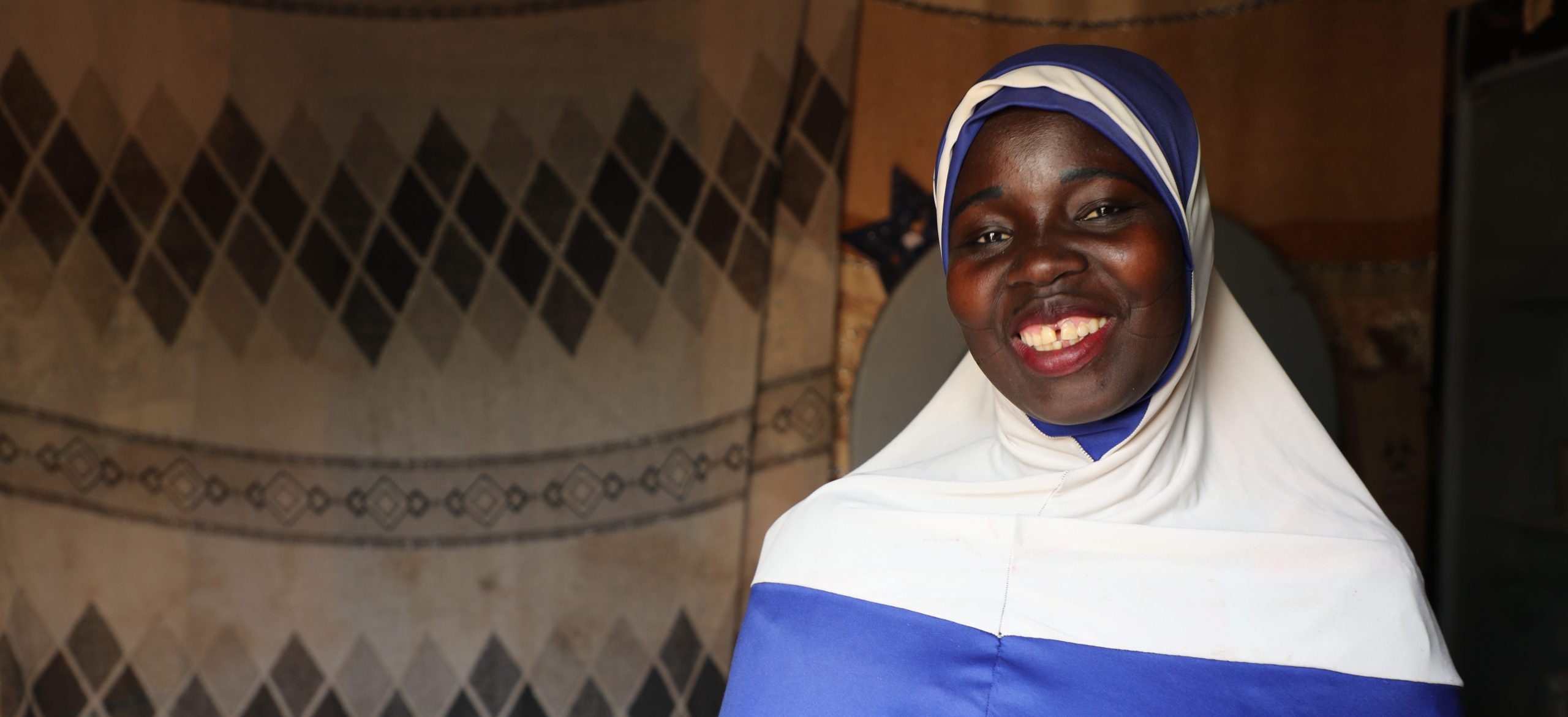
All photos by Hadjara Laouali Balla, Knowledge Management/Communications Advisor, MOMENTUM Integrated Health Resilience/Niger
On Mother’s Day, we celebrate the many mothers who work with MOMENTUM Integrated Health Resilience to improve the lives and well-being of women and children in their communities.
One notable example is community health worker Zoulaha Adamou, age 37, in the village of Angoal Tawra, in southwest Niger’s Dosso region. She supervises three lead mothers, who each oversee a local Care Group. The Care Group model is a community-based approach that brings together a volunteer network of 10-15 mothers in each group to promote beneficial health and lifestyle practices such as voluntary family planning, prenatal and postnatal care, exclusive breastfeeding, proper hygiene, home gardening, and food preparation for a diversified diet.
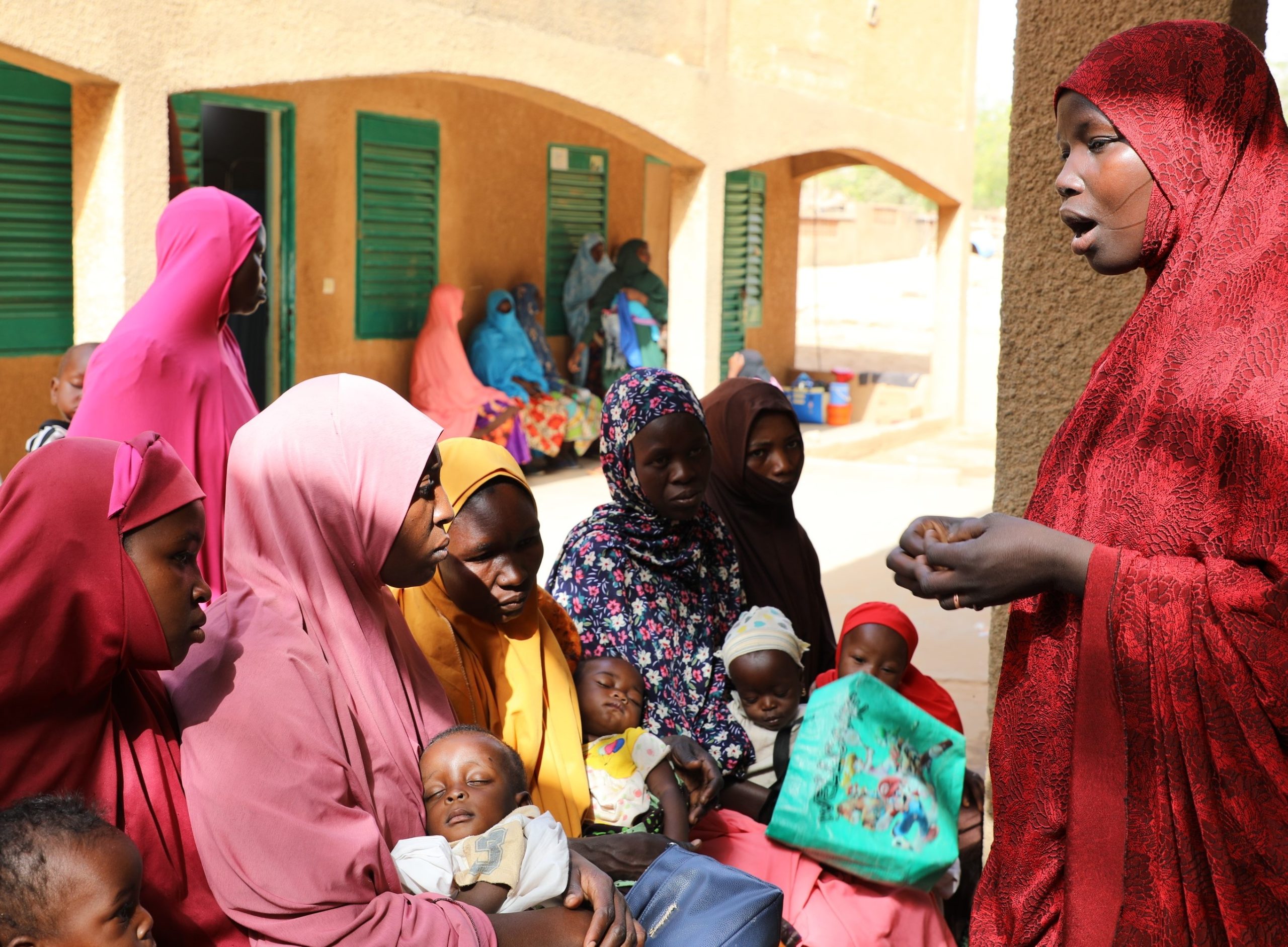
Lead mothers facilitate Care Group discussions among their peers and regularly visit mothers at home to share appropriate health information with individuals, households, and communities. There are currently over 1,300 Care Groups across Niger’s Dosso and Tahoua regions supported by MOMENTUM, involving nearly 20,000 women. In addition, the project has trained more than 1,300 lead mothers for the Care Groups.
“Before, people didn’t bother to go to health facilities for treatment, and they bought medicines on the black market,” Zoulaha explains, noting that education sessions have made community members aware of better alternatives. “Now, when someone is sick, they know it’s better for them to go to the health center because health providers have the skills, medicines, and equipment needed to treat people.”

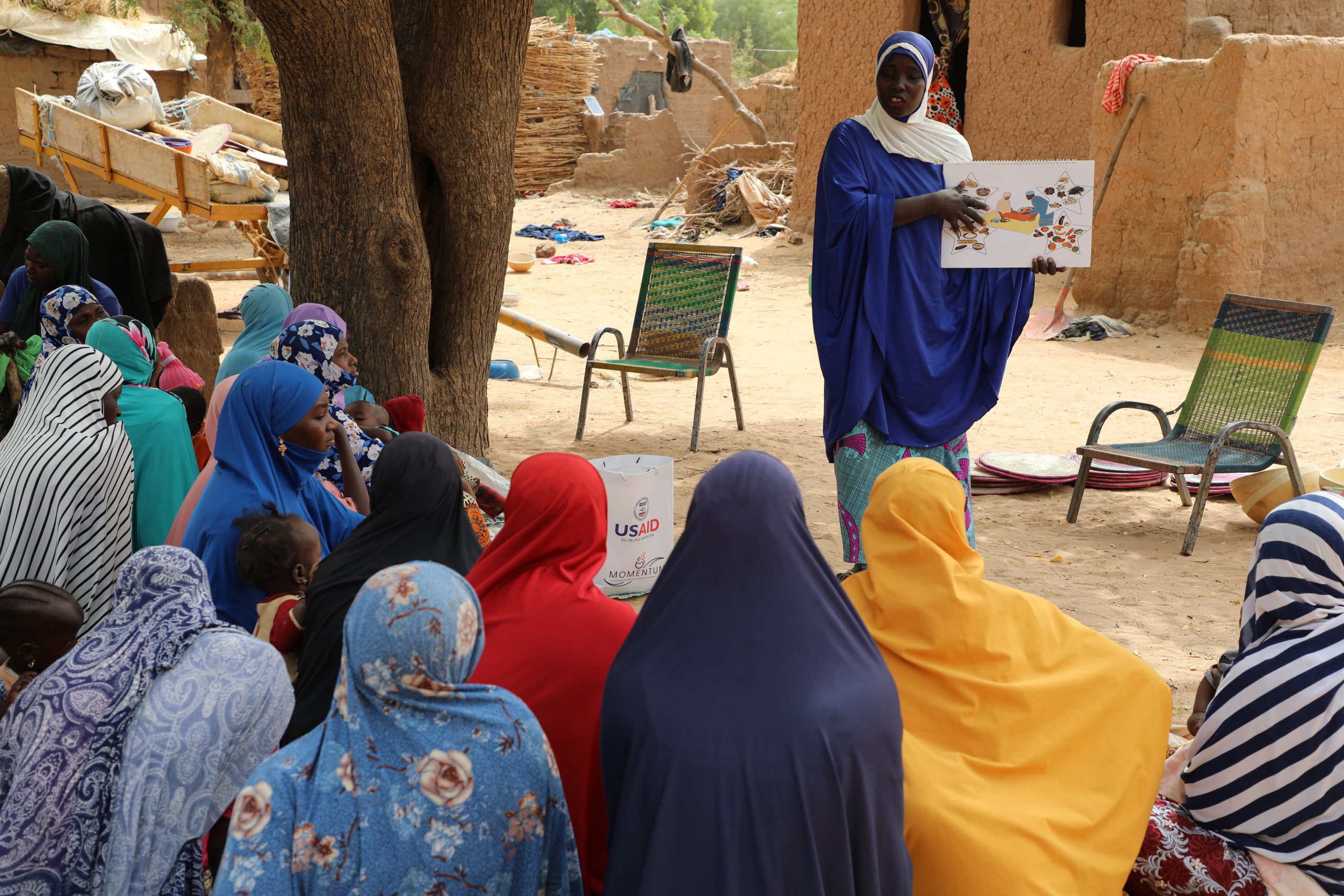
By providing training and support for the Care Groups, MOMENTUM helps mothers expand their knowledge of health for their children and families. Zoulaha and other lead mothers conduct bi-weekly meetings with other mothers to discuss a range of issues, including nutrition management and infant and young child feeding in order to strengthen their health resilience.
“MOMENTUM supported us in the creation of home gardens,” says Zoulaha. “Before this, I didn’t know I could grow crops outside the rainy season, but thanks to MOMENTUM, today I grow lettuce, tomatoes, cabbage, and moringa (a fast-growing, nutrient-rich plant) at home. When I’m tired and don’t feel like cooking, I go to the garden to pick salad and tomatoes to eat with my children.”
MOMENTUM is also helping local mothers create 500 home gardens by equipping them with materials such as hoes, rakes, watering cans, and seedlings to promote the cultivation and consumption of local vegetables with high nutritional value.

Aichatou Gounnou, 36, mother of five, is a member of a Care Group in the village of Angoual Tawra, Dosso. Through one of her group discussions, she learned about the benefits of having a healthy and diversified diet and decided to create a garden in her home.
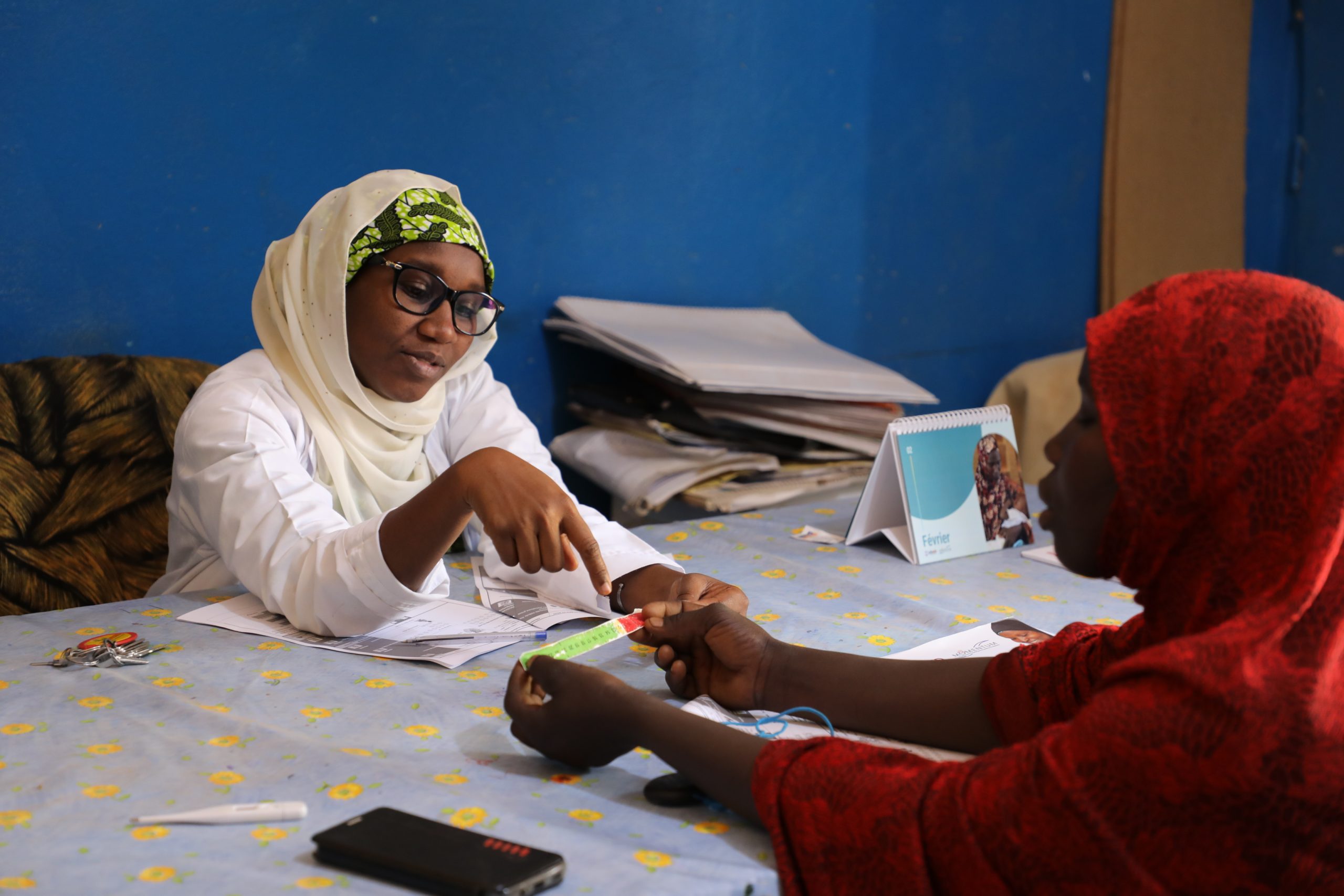
As part of her work, Zoulaha (right) routinely meets with Dr. Halimatou Nassirou Sabo, Chief of Korey Mai Ruwa Integrated Health Center. Here, Halimatou updates Zoulaha on a measuring tape used to record the mid-upper arm circumference of children as a gauge of their nutritional status.

Zoulaha routinely records the weight of infants ages 6 months to 59 months as part of passive screening for malnutrition in the Korey Mai Ruwa Integrated Health Center to ensure that babies are experiencing healthy weight gain. The benefits of engaging lead mothers to work with their peers should prove to be significant. Positive intended outcomes include expanding coverage and use of community health services, spreading health and nutrition messages, encouraging positive health behaviors, and increasing the practice of exclusive breastfeeding up to the age of 6 months.
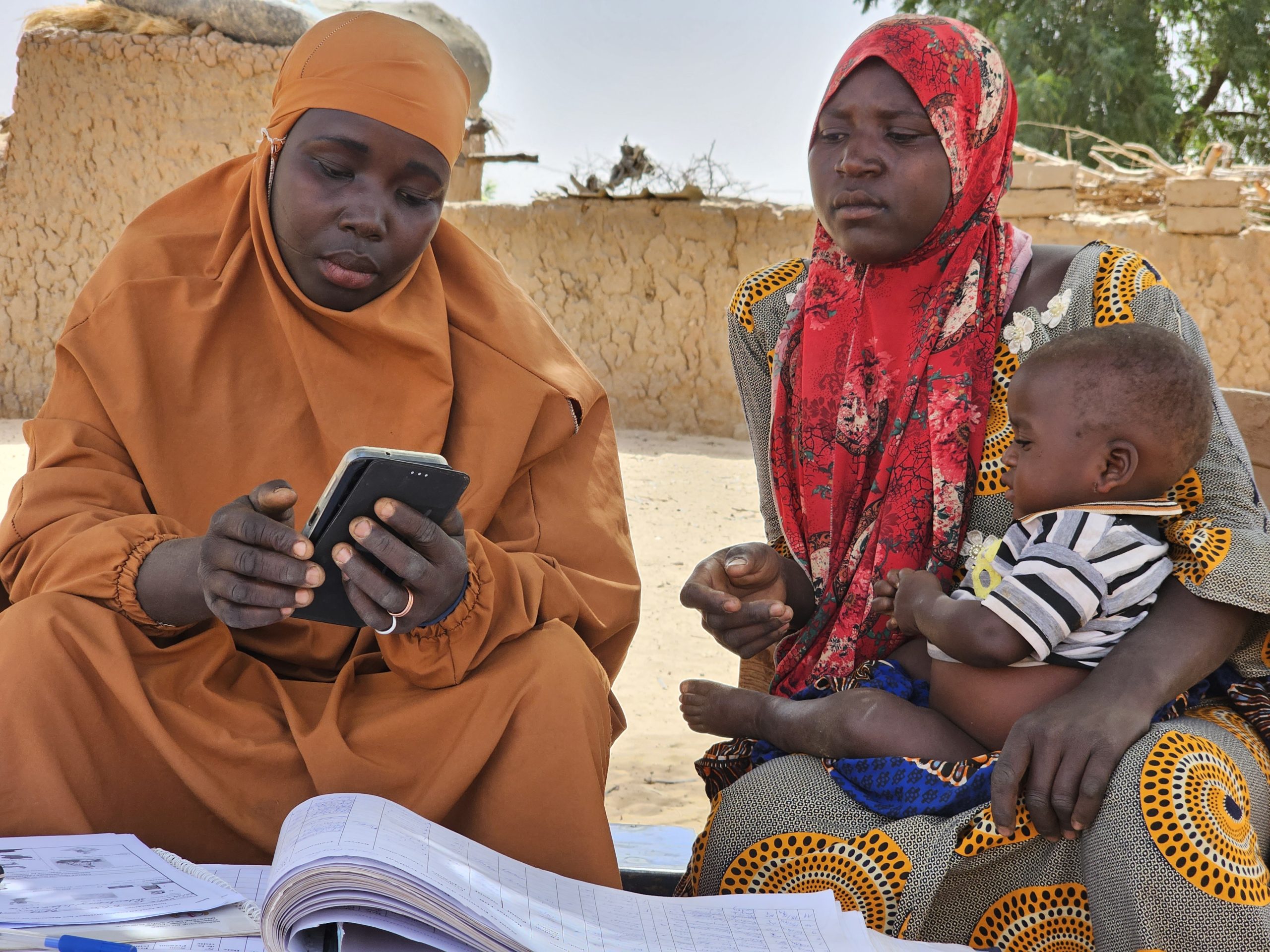
The use of modern technology facilitates the work of Care Group leaders. For example, Zoulaha can register a sick infant’s symptoms and status on her smartphone using the mHealth cloud application, which connects individual records to a national database system. The infant’s condition can be tracked and updated over time, and the online system allows access to records even if a mother misplaces her infant’s paperwork. If the infant’s condition worsens, doctors at a clinic will access the database to assess the infant’s status.
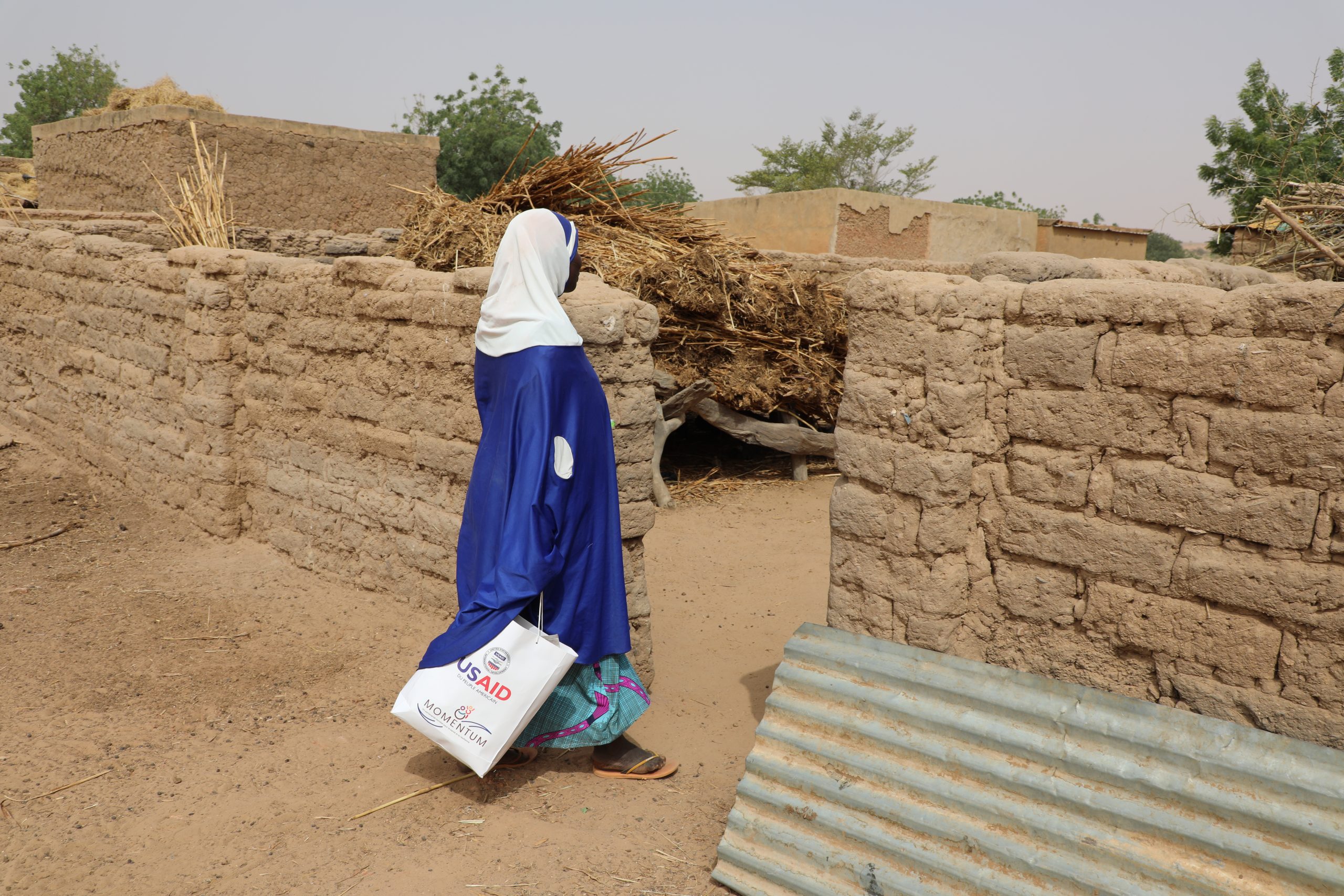
Along with her regular community meetings, Zoulaha conducts home visits to family compounds, in particular to see the mothers of newborns. “Thanks to the training I received from MOMENTUM, I now know how to diagnose and treat simple illnesses such as the common cold, fever, and diarrhea, and I can take better care of my own children,” she says.
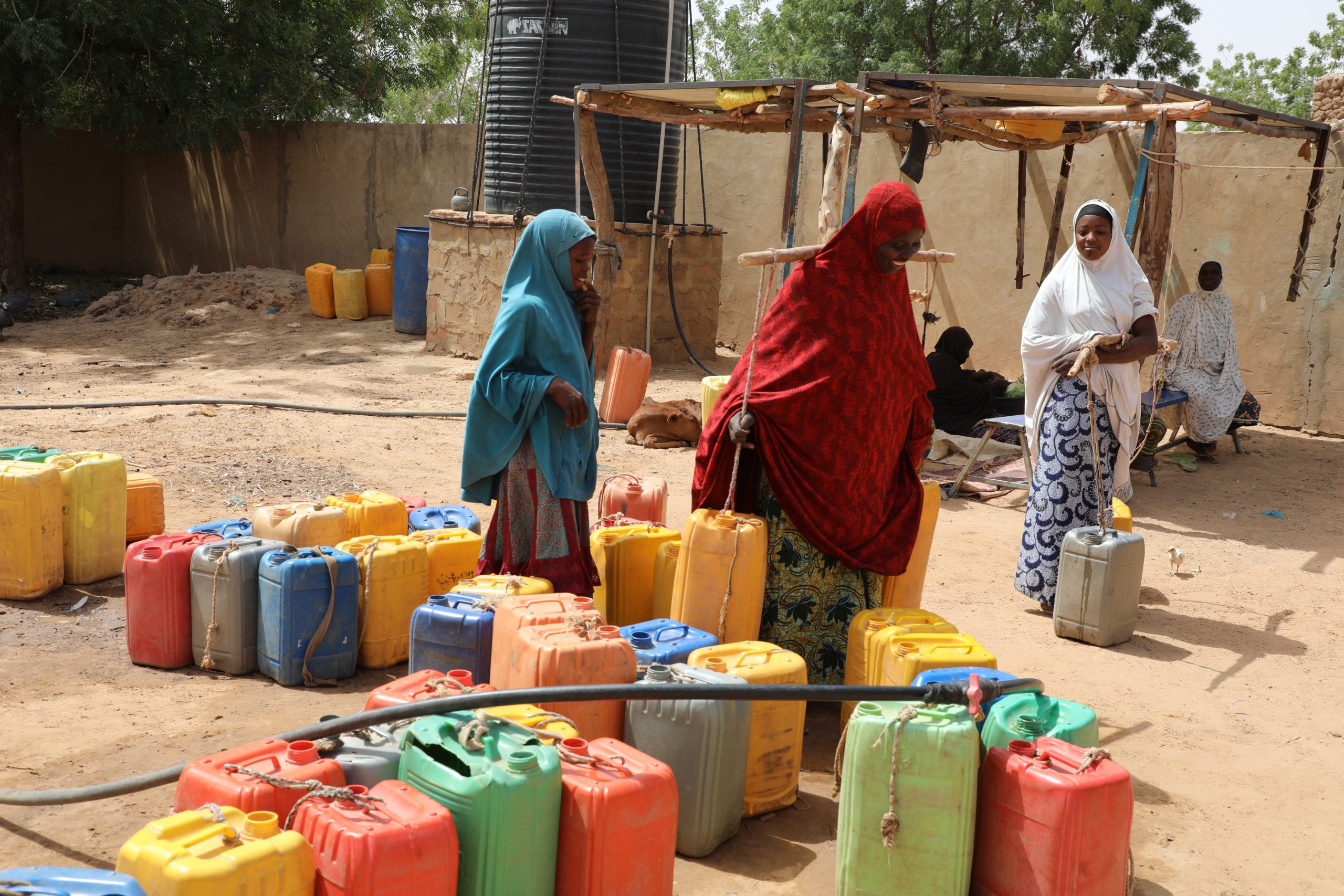

Twice a day, Zoulaha collects and carries two 25-liter containers of water for her family’s consumption and home gardening. She then prepares meals for her family over a wood fire while balancing her community health work and other family obligations. She is also a renowned seamstress in her community.

After a long day, Zoulaha is happy to be home with her own extended family. “I wish I could have gone far with my own schooling,” Zouhala confides. “But my community health activities help me not to forget what I have learned in school. I also help my children with their homework so that they can do well in school.”
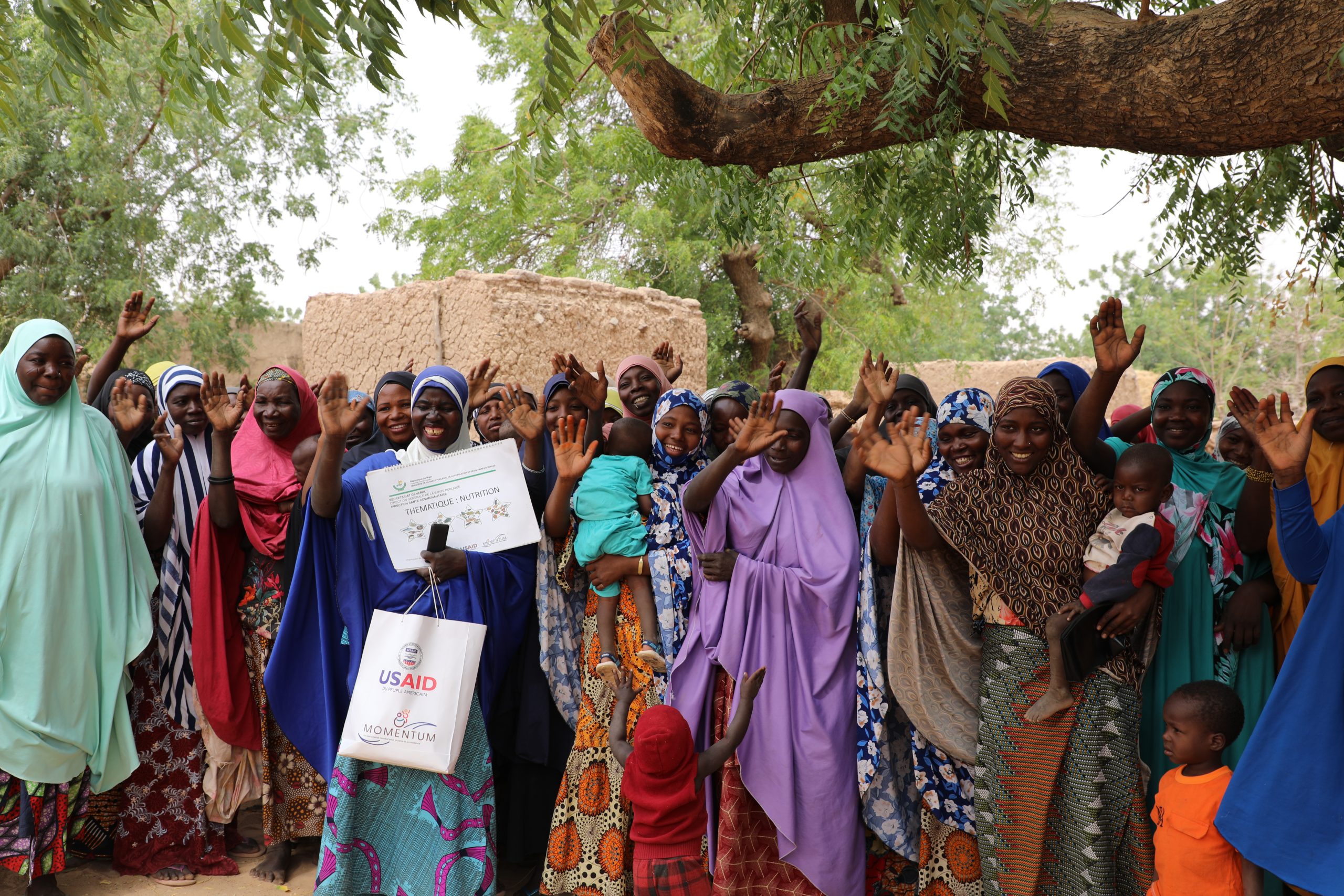
Zoulaha periodically meets with larger groups of mothers in Angoal Tawra for sensitization sessions. These awareness meetings foster positive behavior changes among women. Several health topics are discussed at these sessions, such as family planning, nutrition, hygiene, vaccinations, using health centers for deliveries, the importance of pre-and postnatal consultations, and exclusive breastfeeding. Illustrated meeting booklets provided by MOMENTUM help explain health topics to participants.
As for what lies ahead, Zoulaha says she is hopeful: “If people follow the advice we give them during awareness sessions, I strongly believe that the occurrence of diseases will be reduced in the future. For example, when the measles epidemic broke out, it affected a lot of children, but with vaccinations, [cases] went down. There will be so much improvement in people’s health.”

